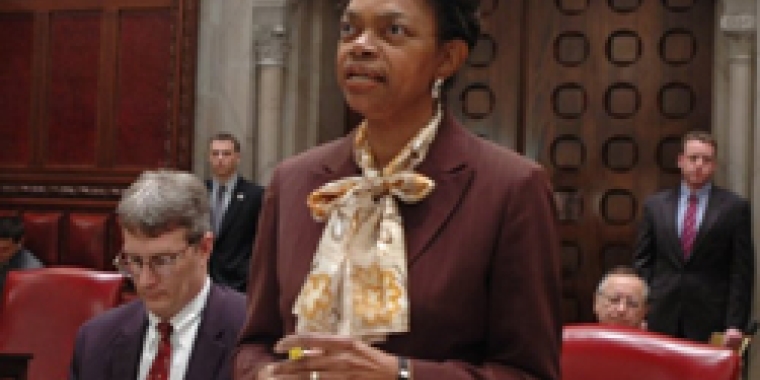
Legislation Lifts Discretionary Ban On Occupational Licenses For Ex-offenders

June 21, 2006 (Albany, NY): New Yorkers who spent time in prison will no longer be automatically denied a license to barber or practice cosmetology if legislation, approved this week by the State Senate, is signed into law (S.5934-A/A.6179-A).
This change to New York’s licensing guidelines is made possible under legislation sponsored by Senator Velmanette Montgomery (D-Brooklyn) and Assemblyman Michael Benjamin (D-Bronx).
The Montgomery/Benjamin bill prohibits licensing agencies from disqualifying someone from licensure as a barber or cosmetologist solely on the basis of a criminal conviction.
Approval for almost every occupational license is based on a number of factors, including good moral character defined in the State’s General Business Law. In discussing the injustice of this discretionary standard, Montgomery points out that applicants’ criminal history is taken into account by licensing agencies as a reflection on their moral character and has, in practice, become a mandatory prohibition to state licensure for ex-offenders.
"Inmates in New York correctional facilities are encouraged to participate in and successfully complete vocational/occupational training programs so they may have a chance to compete for real wage jobs when they get out of prison," said Senator Montgomery, who is a member of the Senate Committee on Crime Victims, Crime and Correction.
"Barbering and cosmetology are two of the occupations for which training is offered in prison," Montgomery noted. Men and women transitioning from prison to community life should be allowed to pursue the profession(s) for which they were trained and to contribute to society as law-abiding, taxpaying citizens."
Cosmetology training is offered to women incarcerated at Taconic, Bedford Hills and Albion correctional facilities. Barbering training is available to male inmates at Hudson, Green Haven, Auburn and Mid-State correctional facilities.
"Ex-offenders face a myriad of mandatory exclusions from housing, social programs, employment and other necessary transitional services. My bill is an important step to making job security accessible to people who endeavor to be a success in the free world," the Senator said.
Having passed both the Senate and Assembly, the bill now goes to the Governor for consideration. "I call on criminal justice advocates statewide to join me in urging the Governor to sign this legislation into law."